In Spotlight: Sustainable South Coast
Earlier this year, NOSY became involved with the Southern Sustainability Partnership, specifically with the Big Sustainability Awards.
19 October, 2023
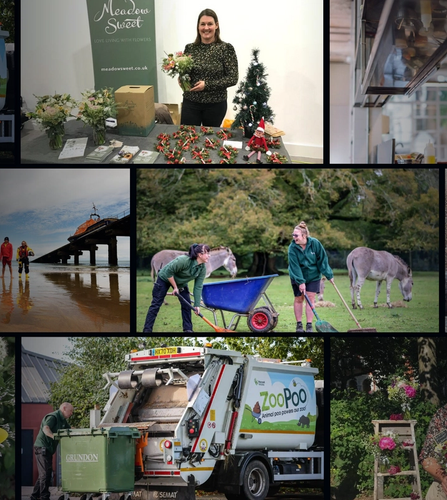
The urgency of sustainability has become impossible to ignore, and businesses are starting to realise that green initiatives are more than just a badge of honour; they're a necessity. Earlier this year, NOSY became involved with the Southern Sustainability Partnership, specifically with the Big Sustainability Awards.
NOSY sponsored one of the award’s categories (Communicating Your Sustainability Project) and after nominations were announced, we approached the organisers with a proposition of showcasing some local companies that were selected.
This feature dives into four nominees - RNLI, Marwell Wildlife, Harvest Fine Foods, and MeadowSweet - each delivering a unique blend of business acumen and environmental stewardship on the South Coast.
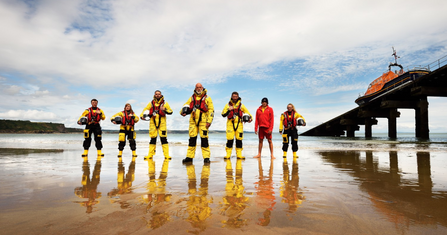
RNLI
Lifesaving with a Sustainable Lens
The Royal National Lifeboat Institution (RNLI) has a long-standing reputation for saving lives at sea. While their primary focus remains on maritime rescue, they've started setting benchmarks for sustainability. RNLI is exploring the switch to renewable energy to power their lifeboat stations and has a comprehensive recycling program for worn-out equipment. They have partnered with environmentally-conscious suppliers to reduce their overall carbon footprint.
Commitment to Zero Waste
In 2020, the Sustainability Special Interest group & RNLI Leadership made a commitment (ambition) to get to Zero Waste by 2030. Their Zero Waste Programme has seven stages:
- Navigating progress to Zero Waste to Landfill by 2030 (overarching programme)
- Getting Shipshape - building compliance - Completed 2022
- Onboarding their crew - engagement and conversations - Underway in 2023
- Making waves - Delivery - Underway in 2023
- Stemming the tide - target setting for the road map
- Rock the boat - tackling the big problems
- How to get all hands to the deck - making it last
We can inspire others to embark, navigate, and keep rolling with the tides to make sure that we all play our part in reducing waste. And hold the mirror up to everyone to ensure their endeavors are being met as strongly as ours... and not be afraid to shout about progress.
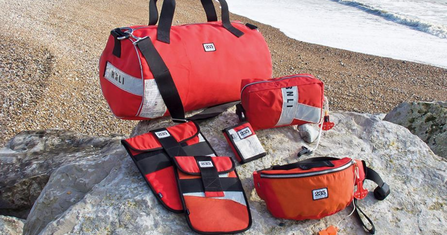
RNLI's range of products made from upcycled lifejackets
Building Community through Education
Another one of RNLI's stand out efforts lies in its community engagement. They believe in educating not just their volunteers but also the public on environmental issues. Campaigns and workshops focused on sustainable practices form part of their outreach activities. This mentality can have a huge positive impact.
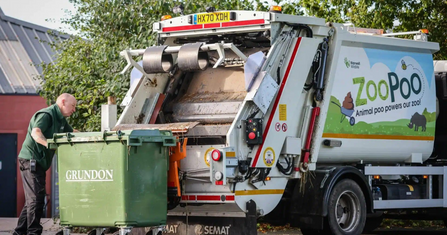
Animal poo powers our zoo!
Marwell Wildlife
A Haven for Conservation and Innovation
Marwell Wildlife, a zoological park, is well-known for its conservation efforts for endangered species. They welcome over half a million guests and 40,000 school children each year. By experiencing the wonders of the animal kingdom, people are inspired to connect with nature and develop a deeper appreciation for our planet.
Yet, what sets Marwell Wildlife apart is its holistic approach to sustainability:
- Conserve species and their habitats, locally and globally
- Inspire care for the natural world
- Undertake and share results of scientific studies
- Improve environmental performance and promote sustainable living
As well as the bigger goals, the organisation undertakes various sustainable projects. For example, their "Pick Up the Poo" initiative tackles a seemingly small but significant issue: reducing water contamination through responsible waste disposal.
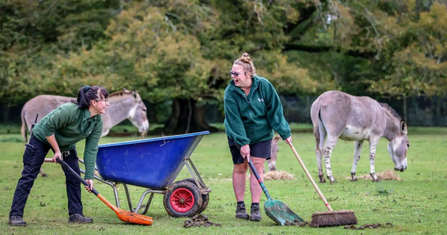
Marwell generating renewable energy using animal poo
Energy for Life
Another highlight area is Marwell’s sustainable energy management. The project combines an immersive indoor guest experience with an Energy Centre that provides renewable heat generated from their own animal waste to the Tropical House and five other buildings (which were previously heated by oil) via an underground heat network.
The project was conceived as both a renewable heat concept and as an opportunity to talk to guests about the impacts and the solutions to climate change.
To date, Marwell has achieved the largest carbon reduction of any organisation in the UK zoo sector with their efforts, representing genuine improvements in our operations rather than relying on offsetting.
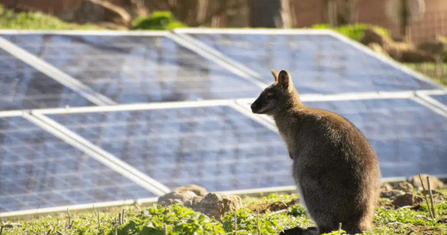
Marwell zoo solar panels
Planting Seeds for Future Generations
With educational programmes that focus on the importance of biodiversity and sustainable living, Marwell Wildlife isn't just about the here and now. They aim to influence the next generation.
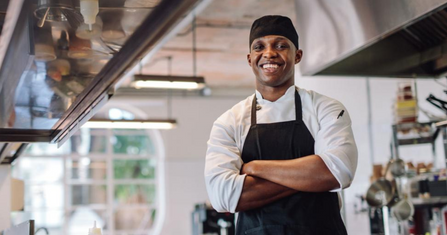
Harvest Fine Foods
Putting Local First
Harvest is a leading supplier of quality ambient, fresh, frozen and chilled produce, as well as a comprehensive range of non-food items. But they are not your typical supplier. Situated in the South Coast region, they have established partnerships with over 40 local organisations, thus ensuring that the money remains within the local economy while also reducing food miles. The fact that all their delivery vehicles are hybrid as of December 2022, speaks volumes about their commitment to sustainability.
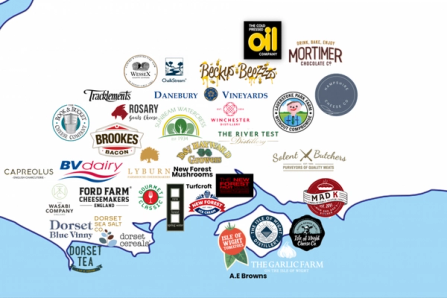
Harvest's local supplier map
Data-Driven Sustainability
The company utilises route management software to optimise delivery routes, reducing fuel consumption. Additionally, their Transport Management Team monitors driver performance in terms of kilometers per litre (KPL) with the aim of continually reducing their fuel consumption.
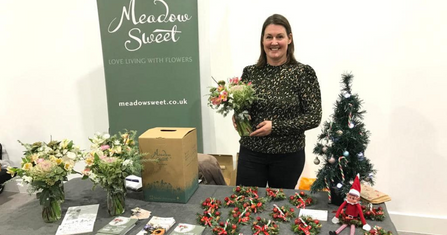
MeadowSweet
Blooming Sustainably
MeadowSweet revolutionises the flower industry with its 100% British flower subscription service. Considering that imported flowers make up a staggering 86% of the UK market, their business model is a game-changer. By sourcing locally, they have managed to cut carbon emissions by more than 70,000 kg, as compared to what would have been emitted by imported flowers.
Creating Change Through Packaging
MeadowSweet started with a plastic foldable vase as a sustainable delivery option but switched to glass jars in response to increasing consumer demand for plastic-free solutions.
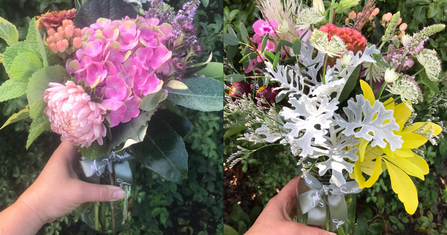
MeadowSweets glass vases
Coming from a sustainability background, every decision considers our environmental and social impacts. We use >33% recycled-content English glass jars. We use >80% recycled cardboard in our boxes and 100% recycled paper, we use biofilm stickers and bags, bamboo stem wrap, rubber bands and we reuse packaging from our local customers.
Conclusion
Each of these four companies shows us how sustainability can be integrated into different business models. From life-saving efforts at sea to delivering flowers, the common thread is a deep-rooted commitment to sustainable practices that serve as an inspiration for others to follow. These companies prove that in the business of being green, there is not just room for innovation, but also for profitable growth. Sustainability and business success are, indeed, two sides of the same coin.
While the journey towards full sustainability is long, these businesses show us that steps, both large and small, can result in meaningful change. Their stories are not just case studies but catalysts for a larger movement towards a sustainable future.
You can learn more about the Southern Sustainability Partnership, including their expo and awards, here: southernsustainability.co.uk.
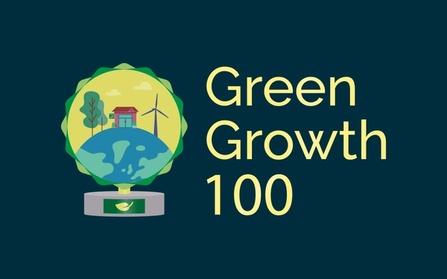
NOSY named in the UK's Green Growth 100
NOSY has been recognised as one of the UK's small businesses leading the way in sustainability-led growth.
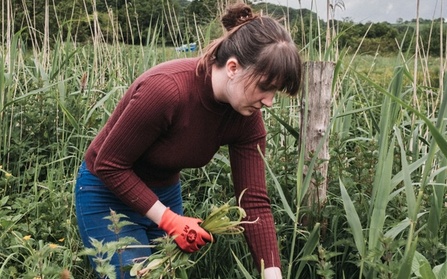
Prosperity over profit
We live in a world where 'growth at all costs' doesn't align with a sustainable future. Instead, we look at the impact we have on the prosperity of people as a key benchmark of our success.
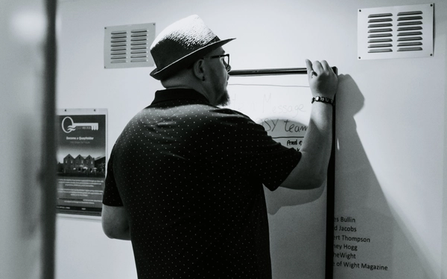
Building brands with clarity and purpose
Over nearly 20 years, Scott Bennett has helped shape brands that stand for something. As NOSY’s Creative Director, he shares how strong brands are built.
Let's work together
Telephone
+44 (0)1983 632997Office
Top Floor, 8 Gray's Walk, Newport, England, PO30 1TD